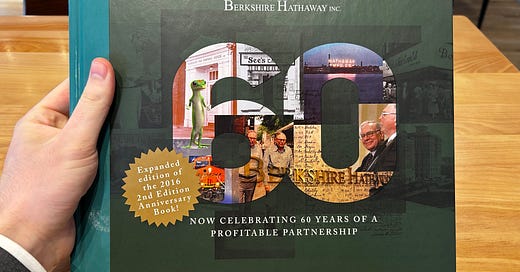
Being happier with your job starts with reclaiming life outside the office
An interview with Simone Stolzoff on rethinking our relationship with work and lessons on happiness from his new book, The Good Enough Job.
It's difficult to separate who you are from what you do. Often, the complex story of your identity is abridged into how you trade your time for money. It's a callback to childhood, when you adults asked you what you want to "be" when you grow up.
But that coalescing means feelings of boredom, dissatisfaction, and misery on the job seep into the rest of your life.
To journalist Simone Stolzoff, mitigating unhappiness at work begins with reclaiming life outside the office. For his new book, The Good Enough Job, which comes out in May, Stolzoff spoke to over 100 workers ranging from Wall Street bankers to teachers, chefs, and others across the American economy to unpack how work has come to dominate our lives, and why it's so difficult to partition from our sense of self.
While not everyone has the ability to dictate exactly what they do for a job, he believes it's important to notice just how much of ourselves we give to work and reflect on our relationship with it.
"I understand the irony of writing a book on the side with a full-time job about the culture of over-work," Stolzoff told me on a video call from San Francisco. "I wrestled with that throughout the book, the way we've yoked our self-worth to productivity."
The questions he poses are fundamental, obvious even, but nonetheless jarring: Who are you without your job? Does your job have to be a calling? How much is your work tied to what you see in the mirror?
In our conversation, Stolzoff — who's covered workplace trends for The Atlantic, WIRED, and Fast Company — spoke of psychologist Esther Perel's idea that too many people give the best of themselves to work and bring only leftovers home.
"We have such limited time and energy to invest in ourselves and others," he said. "If you want to be a better friend, parent, or sibling, all those relationships require energy. We have to make sure we have enough of it for things outside work."
Diversify your identity like a portfolio
It isn't uncommon for people to commit themselves to a job title or company, and then use that to define who they are as individuals. But that means building a sense of self upon a floor that could fall away at any moment — losing a job would mean an identity crisis.
Similarly, as investor Paul Graham wrote in 2006, attaching your self-worth to a flashy or high-profile achivement can warp what you think you want. Prestige "causes you to work not on what you like, but what you’d like to like," Graham noted.
"There's sort of a chicken and egg problem," Stolzoff added. "People work all the time, and so they aren't sure of who they are when they're not working. But because they aren't sure of who they are when they're not working, they end up working all the time."
Like a stock portfolio, the author recommends diversifying your identity. Adopting more non-work activities to derive meaning and enjoyment can provide a cushion — a hedge — against feelings of listlessness or ennui at work. That could look like volunteering, joining a recreational sports team, or scheduling time with loved ones.
Indeed, through his reporting Stolzoff found that workers with more non-work pursuits proved more resilient against adversity. Academics have previously arrived at a similar conclusion: The more complex an identity, the stronger an individual through times of hardship.
The 'good enough' job
Stolzoff isn't arguing that work isn't important. The way you fill those hours matter, and cultivating a sense of duty is worthwhile. Yet the idea that a job will deliver something like self-actualization is a lofty expectation to impose on yourself and employers, he maintained, and it typically leads to disappointment.
Happiness can better stem from drawing expectations along the lines of "good enough," and then using those parameters to keep work from consuming your entire identity.
"Maybe 'good enough' means a job that pays a certain wage, or has certain hours, or leaves you enough energy to do what you like to do when you're not working," Stolzoff said. "Once you have that definition, you can recognize it and be more content, as opposed to always searching for a dream job."
Who are you without work?
Counterintuitively, Stolzoff said many of most fulfilled employees he spoke to for The Good Enough Job were those who saw work as transactional.
That is, they viewed work in the same way that a corporation or employer would see it. An exchange of time for money, and not necessarily a reservoir to draw purpose from.
Many of those workers reported being even happier than those who considered work an expression of their individualism, he explained. Those staffers clocked in and out of work each day but didn't necessarily empty the tank, and then went home with enough verve to pursue other interests.
Over time, that means having the energy to build out other sources of meaning — and cementing who you are beyond the office.
"Some of the happiest people were those who worked jobs that they weren't particularly passionate about, jobs that allowed them to be the people that they wanted to be outside of work," Stolzoff said. "The common thread is that the people who were 'happy workers' had a very clear sense of who they were when they weren't working."
Simone Stolzoff's book is available for pre-order here. You can sign up for his newsletter here.











